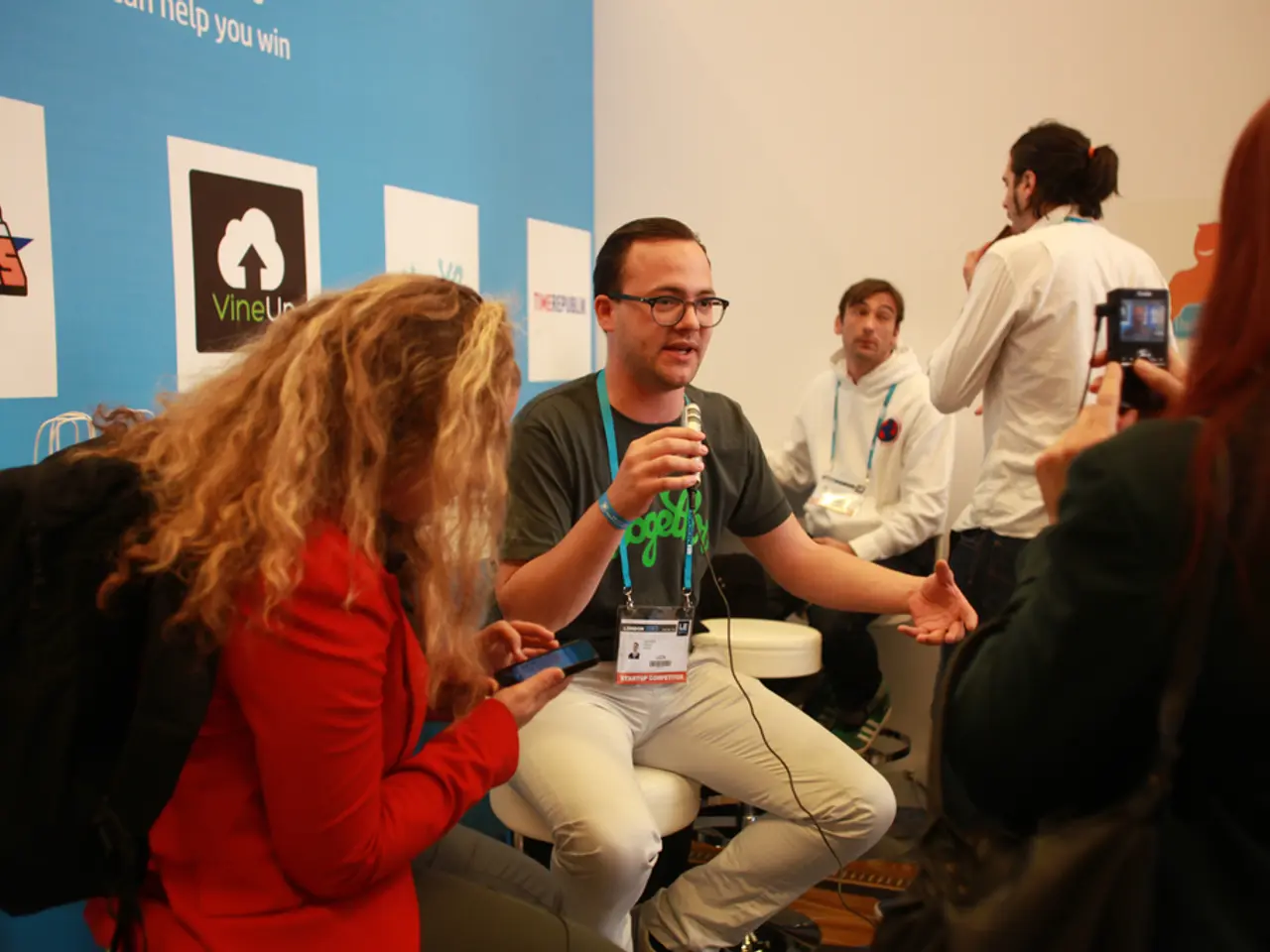Strategies for acing your job interview: a comprehensive guide
**Preparing for a Job Interview: A Comprehensive Guide**
In the job market, making a strong first impression is crucial, and this starts with thorough preparation for the interview. Here are some key areas to focus on to ensure you present yourself as a confident and well-prepared candidate.
**1. Research the Company**
Learn about the company's mission, values, products, services, and recent news to tailor your answers to align with the company culture and demonstrate your genuine interest in the role. Reading relevant articles or business news can provide valuable talking points that showcase your knowledge and engagement.
**2. Understand the Role**
Familiarise yourself with the job description, and prepare your professional story around the specific skills and experiences that match the position. Be ready to answer why you want this job and this company specifically, and firmly connect your background to the role.
**3. Practice Common Interview Questions**
Anticipate and rehearse answers to common questions, using methods like the STAR technique (Situation, Task, Action, Result). Practice aloud to improve clarity and confidence while minimising filler words.
**4. Dress Appropriately**
Dress to match the company culture. For formal companies, business professional attire is suitable; for startups, smart casual might work. Ensure your clothes are clean, pressed, and professional to make a positive first impression.
**5. Manage Your Time**
Plan your route in advance and aim to arrive early to avoid rushing or being late, as punctuality critically impacts first impressions.
**6. Make a Good First Impression**
Use positive body language: maintain steady eye contact, offer a firm handshake, sit with good posture, smile genuinely, and avoid nervous habits like fidgeting. Speak clearly and confidently. During online interviews, maintain eye contact by looking straight into the camera.
**7. Ask Thoughtful Questions**
Prepare insightful questions about the company or role to ask the interviewer, showing your enthusiasm and thorough preparation.
**Summary Table:**
| Preparation Aspect | Key Tips | |------------------------|------------------------------------------------------------| | Research the Company | Understand mission, recent news; align responses[2][1] | | Understand Role | Know responsibilities; prepare "Why this job?" answers[1]| | Practice Responses | Use STAR method; rehearse common questions aloud[3] | | Dress Appropriately | Match company culture; err on side of overdressing[2][4] | | Time Management | Plan route; arrive early to avoid stress and lateness[4]| | First Impression | Eye contact, firm handshake, good posture, smile[3] | | Questions to Ask | Prepare thoughtful questions to show interest[2] |
Additional tips include preparing a glass of water for phone interviews, dressing appropriately for the job for online interviews, and dialling into the call a few minutes early. After the interview, inquire about when to expect a response and how it will be delivered. Reflect on the conversation to determine what went well and what can be improved for next time.
For phone interviews, let the interviewer finish speaking, and maintain eye contact by looking straight into the camera during online interviews. Some common interview questions include "Tell us about yourself," "What are your strengths and weaknesses?," "Why should we pick you for this position?," "How do you work when stressed?," "Why did you apply for a position at our company?," etc.
By focusing on these areas, you will maximise your confidence and present yourself as a strong, prepared candidate during your interview.
- In the process of personal growth and career development, education-and-self-development plays a crucial role when preparing for a job interview. Learning about common interview questions and practicing responses using methods like the STAR technique will help you demonstrate your readiness for the position.
- After researching the company, understanding the role, and preparing thoughtful questions about the company or role, job-search strategies can be utilized to highlight your personal growth in the context of ongoing education-and-self-development, thus showcasing your committed approach to professional development in your interview.




